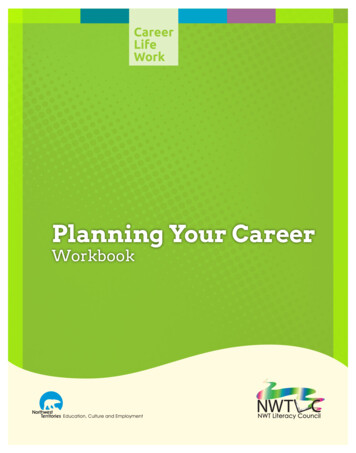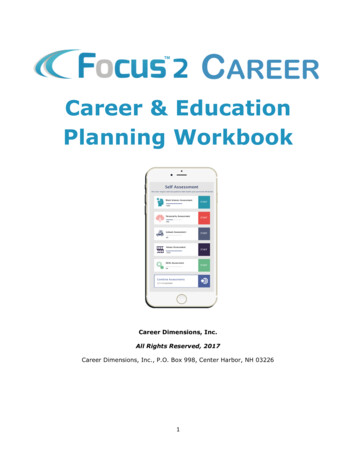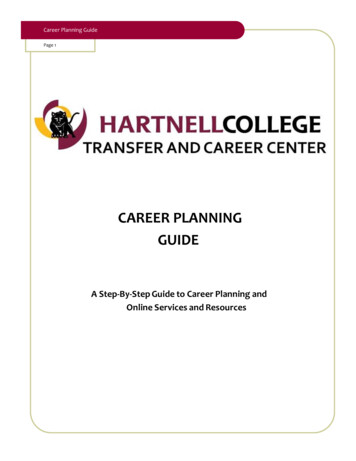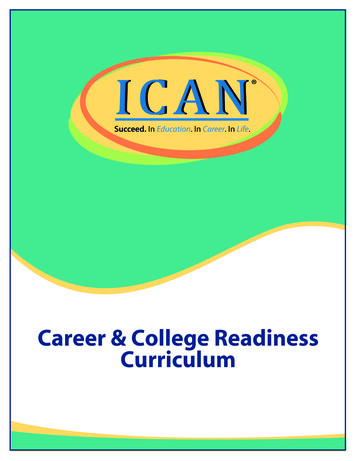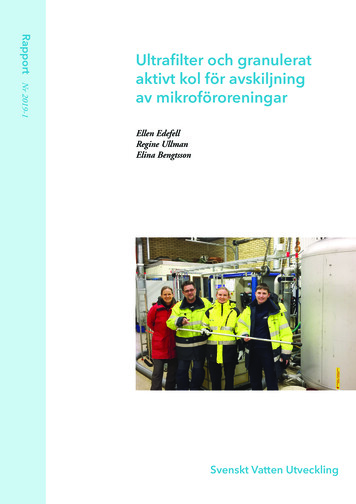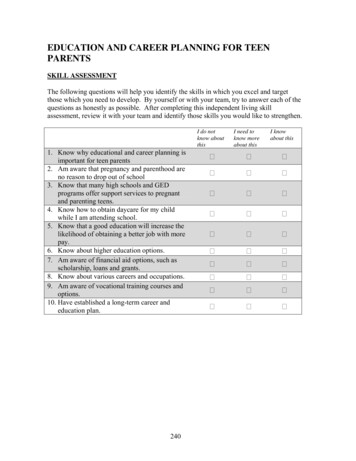
Transcription
EDUCATION AND CAREER PLANNING FOR TEENPARENTSSKILL ASSESSMENTThe following questions will help you identify the skills in which you excel and targetthose which you need to develop. By yourself or with your team, try to answer each of thequestions as honestly as possible. After completing this independent living skillassessment, review it with your team and identify those skills you would like to strengthen.I do notknow aboutthis1. Know why educational and career planning isimportant for teen parents2. Am aware that pregnancy and parenthood areno reason to drop out of school3. Know that many high schools and GEDprograms offer support services to pregnantand parenting teens.4. Know how to obtain daycare for my childwhile I am attending school.5. Know that a good education will increase thelikelihood of obtaining a better job with morepay.6. Know about higher education options.7. Am aware of financial aid options, such asscholarship, loans and grants.8. Know about various careers and occupations.9. Am aware of vocational training courses andoptions.10. Have established a long-term career andeducation plan.240I need toknow moreabout thisI knowabout this
You have now completed the assessment section and identified those education and career planning skills for teen parents that youwould like to strengthen in order to make better decisions on your own. The following guide can help you in planning how you canlearn about and practice skills. Choose a few skills that you want to develop, and with your team, write down your plan of action.Remember, once you accomplish these goals you can go back to your assessment tool and select new goals to build on your skills.EXAMPLEGOAL:State Skill 1:To establish a long-termcareer/education plan.IMPROVE PRE-NATAL CARE SKILLSPlan:When:Who:Research my career interests.Once a week for1 hourr for thenext 4 weeks.Research higher educationoptions.Once a weekfor 2 hoursfor 4 weeksResearch financial aid andscholarship options.Once a weekfor 2 hoursfor 4 weeks.241Myself, my guidancecounselor and myfoster parent(s).Myself, my guidancecounselor and mysocial worker.Myself, my guidancecounselor and mysocial worker.
GOAL: WORK ON EDUCATION & CAREER PLANNING SKILLS FOR TEEN PARENTSState Skill 1:To be developedand/or improved.Plan:How do you plan to learn,develop and improve this skill?When:When, where, and how often will youwork on this skill and by when will youhave mastered this?Who:Who will assist you?State Skill 2:To be developedand/or improved.Plan:How do you plan to learn,develop and improve this skill?When:When, where, and how often will youwork on this skill and by when will youhave mastered this?Who:Who will assist you?242
EDUCATIONAL/CAREER PLANNING FOR TEENPARENTSEducational and career planning is an important part of everyone’s life since it willcertainly affect each person’s future. The level of education we have and the kind ofwork we do often determines the level of job satisfaction we experience as well as howmuch money we earn. Also, our jobs can influence our sense of self-worth and selfesteem.In addition, educational and career planning is of particular importance for youngerparents because they not only have to support themselves, but also their children. Also,when parents like their jobs, they are more likely to be inspired to keep them. Inconsequence, they will be able to maintain their source of income and provide a stableand secure environment for their children.Discussion:What do you think? Do you believe that educational and career planning is importantfor parents? Why or why not?Unfortunately, even id education is an important value in their lives, some your parentsmay think that school or vocational training is not an option for them for a variety ofreasons.Consider the following:Allison, 18, has a 16-month-old daughter and lives in a program for pregnant andparenting teens. She is attending a GED program but has not made a lot of progresslately; actually, she is thinking about dropping out. When her staff talk to her about this,Allison gets frustrated and states that she really want to go to college but won’t be able topay for it. Therefore, she feels like giving up and not even trying to get he GED.243
What do you think? Do you agree or disagree? What advice would you give Allison?College is a definite possibility for young parents interested in higher education. Thereare many different financial aid options available, such as grants, loans and scholarships.(For more information on financial aid, see Module 3.) In addition, there are a number ofprivate and public colleges that offer year round housing for pregnant and parentingyouth and other support services, such as on-ground childcare and parenting groups.ACTIVITIES3 Visit your local public library and inquire about colleges offering supportservices to young parents.3 Talk to someone who was parenting while continuing his/her education about theexperiences and rewards of attending college or vocational training.3 Visit a college of your choice and take a tour of the campus.3 Research financial aid and scholarship options.While college may not be the right plan or desirable for everyone, there are many othercareer-training opportunities available that many young parents may not have thoughabout.244
Consider the following:Tyrone is 17 and has a two-year-old son, Nicholas. Tyrone never liked school and wasalso diagnosed with several learning disabilities. He feels really bad about himselfbecause he can’t read all that well. He is hopeless about his future and thinks that he willnever be able to become a professional member of the work force. However, Tyroneenjoys animals and is very talented and patient in dealing with them.What do you think? What kind of advice would you give Tyrone?There are many short-term certification programs available to youth interested in learningspecific skills. These courses range in duration from six weeks to twelve months. Whilesome courses can be quite expensive, such as beauty school, others, such as home healthaid and nurses aid are offered free of charge. (For those courses with fees, however,financial aid is available in most cases). Prerequisites will, of course, vary. Somecourses require a GED or a high school diploma; others do not. Some vocations maysurprise you. Tyrone, for example, could choose to become a dog groomer. If he did, hisinterest in working with animals would be met and he would not have to fulfill anyprerequisite requirements.Remember, it is always the best option to obtain a high school diploma or a GED.To determine what kind of education and career opportunities may be right for you,complete the educational and vocational assessment sections in Module 3 (Education andEmployment).ACTIVITYVisit your local office of employment and training and inquire about career options thatreflect your long-term interests. (Note: some unemployment offices have specific namessuch as “Career Link.”)245
3 Talk to a career or guidance counselor about vocational and educationalopportunities.3 Talk to friends and people you know about their jobs and career choices.Complete the following to record your findings:My interests are:Possible le forparents? (Hours,income, day care,etc.)By using the format below, evaluate your options and develop your career andeducational plan, including time frames.246
247
248
249
250
By yourself or with your team, try to answer each of the questions as honestly as possible. After completing this independent living skill assessment, review it with your team and identify those skills you would like to strengthen. I do not know about this I need to know more about this I know about this 1. Know why educational and career .







